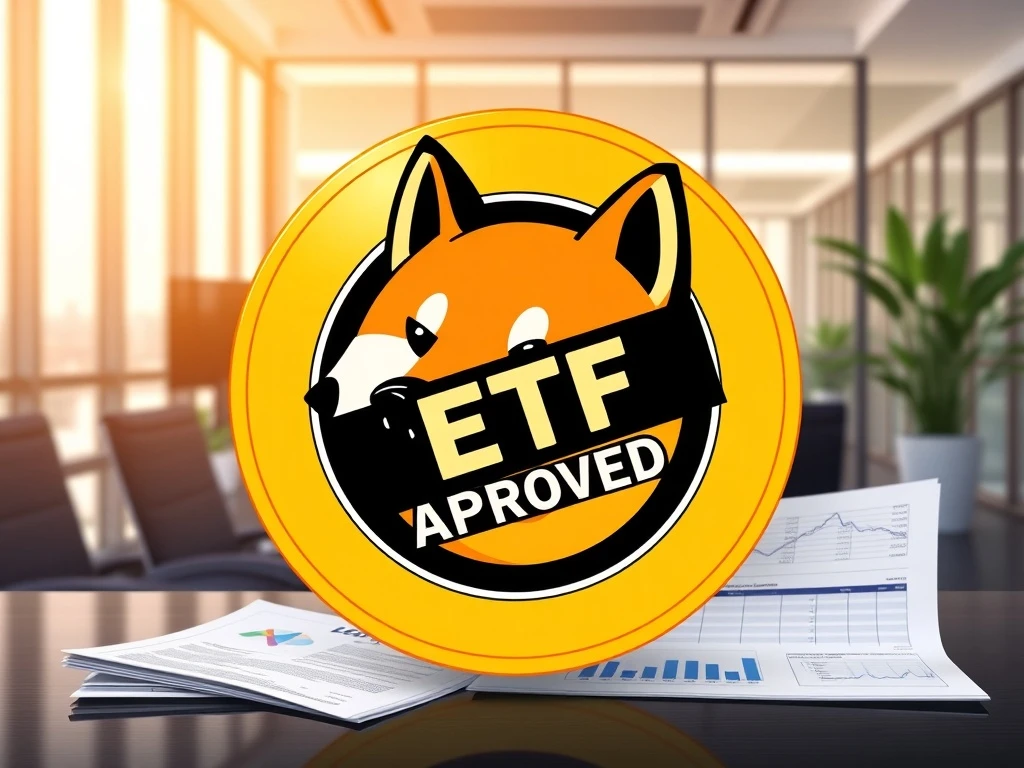In a stunning regulatory maneuver, REX Shares and Osprey Capital are poised to launch the first U.S. Dogecoin ETF by cleverly bypassing traditional SEC approval processes. This groundbreaking development could revolutionize cryptocurrency investment opportunities for millions of investors seeking exposure to the popular memecoin.
Dogecoin ETF Regulatory Innovation
REX Shares employs an innovative 1940 Act structure for their Dogecoin ETF. This approach fundamentally differs from conventional commodity-based trust models. Consequently, it avoids the lengthy 19b-4 rule change requirement that typically delays cryptocurrency ETF approvals. The strategy previously succeeded with their Solana ETF launch in July 2025.
Competitive Advantage in Dogecoin ETF Race
Major competitors face significant regulatory hurdles. Bitwise, 21Shares, and Grayscale all pursue traditional commodity ETP structures. These require specific SEC orders before trading can commence. Meanwhile, REX’s 1940 Act framework enables faster market entry if registration gains approval. This creates a substantial first-mover advantage in the evolving cryptocurrency ETF landscape.
Dogecoin ETF Structural Details
The proposed DOJE ETF features several key components:
- 80%+ asset allocation to Dogecoin or equivalent exposure instruments
- Derivative utilization including futures and swaps contracts
- Cayman subsidiary for tax compliance and regulatory management
- 25% asset cap on subsidiary investments maintaining structural integrity
Market Impact of Dogecoin ETF Approval
Successful Dogecoin ETF launch could transform cryptocurrency investment accessibility. It establishes precedent for non-staking alternative coins seeking regulated market entry. Additionally, it demonstrates regulatory creativity within existing financial frameworks. The ETF Opportunities Trust already includes Bitcoin, Ethereum, and Solana products, providing established infrastructure.
Investor Considerations for Dogecoin ETF
Potential investors should understand several key factors. The 1940 Act structure offers different protections than commodity-based trusts. Tax treatment through Cayman subsidiaries may affect returns. Current Dogecoin price volatility remains a consideration at $0.2165. However, regulated exposure provides advantages over direct cryptocurrency ownership for many investors.
Future Dogecoin ETF Developments
Regulatory landscape continues evolving rapidly. The SEC considers new generic listing rules for crypto ETPs. These changes might streamline future approvals but don’t affect REX’s current filing. Industry observers watch closely as this could set important precedents for cryptocurrency regulation and investment product development.
Frequently Asked Questions
What makes REX’s Dogecoin ETF different from other proposals?
REX uses a 1940 Act structure instead of commodity-based trust, bypassing 19b-4 requirement.
When could the Dogecoin ETF launch?
No specific timeline exists, but the structure allows faster approval than competitor proposals.
How will the ETF maintain Dogecoin exposure?
Through direct holdings, derivatives, and a Cayman subsidiary for certain positions.
What are the tax implications for investors?
The Cayman subsidiary structure aims to provide tax efficiency similar to futures-based ETFs.
Could this affect Dogecoin’s price?
ETF approval typically increases accessibility and potentially positive price pressure.
What happens if SEC rejects the application?
REX would need to address concerns or pursue alternative structures like competitors.








